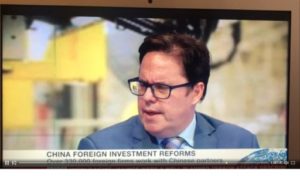“China missed out on manufacturing top quality cars. The industry is being transformed … Chinese policymakers are very keen to be the first and best doing autonomous driving,” said Mark Schaub, a tech industry lawyer and partner with law firm King & Wood Mallesons.
China has grown to be the world’s largest car market and produces tens of millions every year. But few domestic automakers have mastered the core technologies for combustion-engine cars, an area led by the U.S., Japan and Germany. China’s most popular cars have often been produced through joint ventures with leading foreign automakers such as Volkswagen, General Motors and Toyota.
China wants to turn the tables with autonomous driving technology, which would also transform taxis, buses, trucks and delivery vehicles. China’s target is for vehicles with at least partial self-driving functions to account for 50% of new auto sales in five years, according to a blueprint published by a government research body in November…
Beijing, Guangzhou and Changsha appear to be among the more aggressive promoters of autonomous driving. They allow self-driving vehicles to be tested with remote support rather than a human driver. But none of these cities has allowed fully autonomous driving, where both remote controls and backup drivers are removed.
“In China, if you always wait till the law comes into effect, you are six months to a year behind what the regulators are saying,” Schaub said. Unlike most Western countries where authorities enforce the strict letter of the law, he said, there is a lot of discretion in China.
The regulatory approach is expected to put foreign players at a disadvantage in competing with local players in the age of autonomous driving, because “Chinese companies know better how to navigate the legislation and the laws,” he said.
